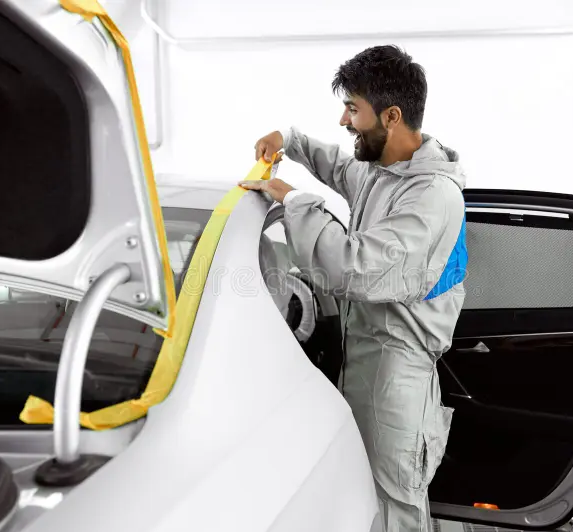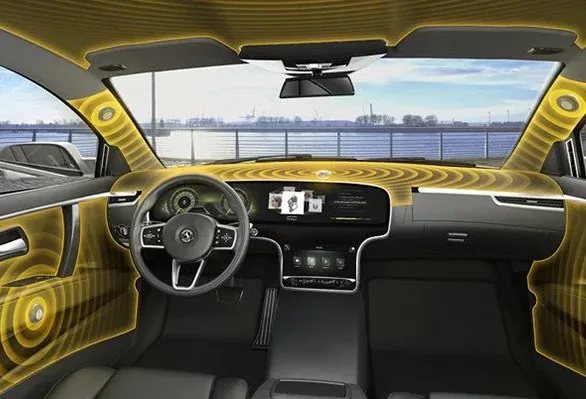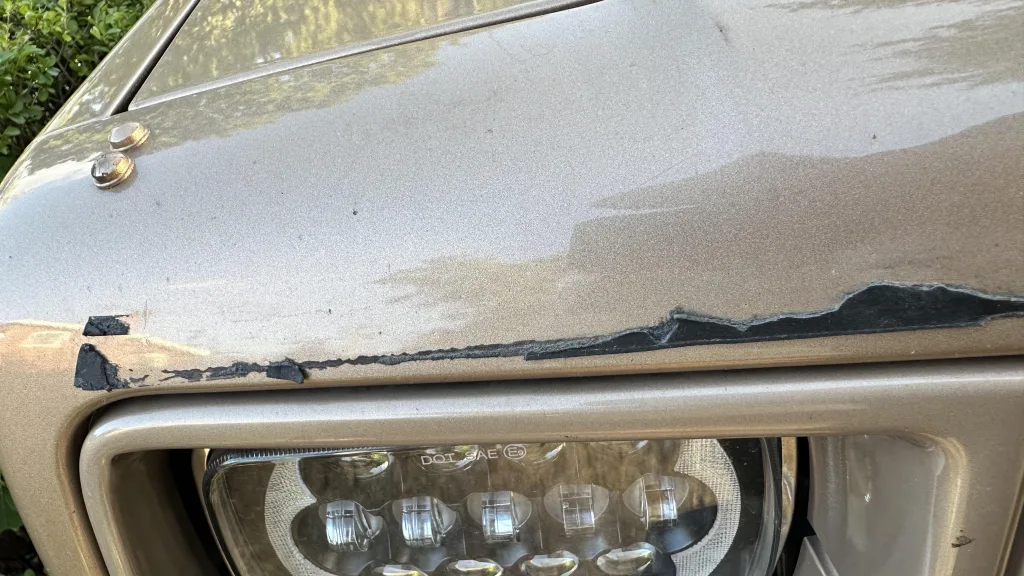In this article, we’ll explore the various sources of road noise—both airborne and structural— along with common sound deadening materials, effective identification methods for noise sources, and step-by-step guidance for DIY soundproofing. We also provide a cost breakdown for the materials needed and suggest additional improvements to enhance acoustic comfort.
What Causes Unwanted Noise in the Car?
Generally, there are two predominant types of road noise: airborne and structural.
Airborne Road Noise
Airborne road noise refers to sounds that travel through the air to reach your ears inside the car. This category includes everything from wind noise as it rushes past the windows to the growl of engines of nearby trucks and motorcycles. Ever noticed that distinct sound when you hit a bump? That’s another example, as the air pressure changes create noise disturbances. According to a report by the U.S. Environmental Protection Agency (EPA), traffic noise significantly impacts public health and quality of life in communities exposed to high levels of road noise (source: Noise as a Public Health Hazard). This type of noise contributes substantially to the overall auditory environment of moving vehicles, making it a critical focus for soundproofing efforts.
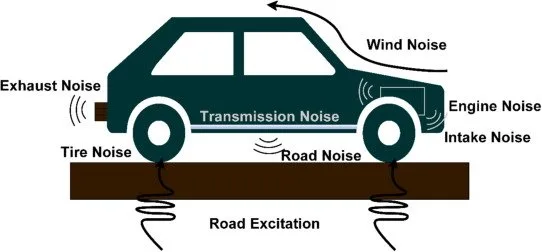
Structural Road Noise
On the other side, structural road noise emerges from vibrations transmitted through your car’s frame and components. Picture this: as your tires roll over various surfaces, those vibrations resonate through the vehicle, making their way into the cabin. The results can be annoying, especially when you’re navigating potholes or uneven terrain. Common culprits include the chassis, floorboards, and even the trunk. Over time, loose fittings can exacerbate this noise, turning your ride into a constant symphony of rattles and shakes.
What Are the Common Materials for Sound Deadening?
When embarking on the quest for a quieter ride, you’ll want to explore the array of available sound deadening options. The sound deadening mattress stands out, absorbing vibrations and dampening noise effectively. Another versatile choice is soundproofing PE foam; lightweight and easy to install, it provides solid noise absorption capabilities. Finally, there’s melamine foam; known for its superior sound absorption properties, it often finds a home in professional applications. Each of these soundproofing materials offers unique advantages, making them popular among car owners seeking improved acoustics.
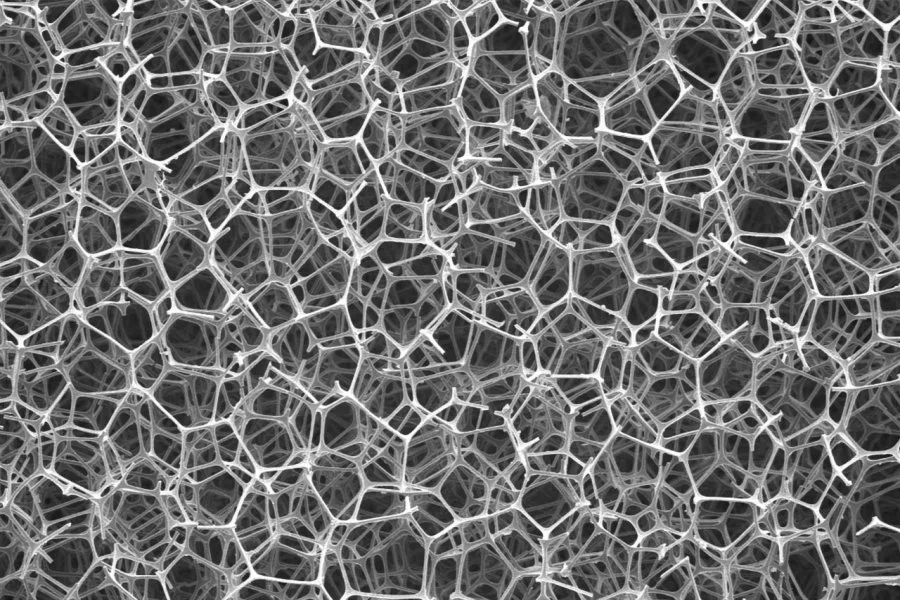
If you are not sure what soundproofing material you are using for your automotive, please read: best soundproofing material for your car.
How to Identify the Source of Noise?
Finding the root of the noise in your vehicle requires a bit of detective work. Begin by driving under different conditions: try out highways, rough streets, and residential areas. Pay attention to where the sound seems the loudest. Is it most intense during acceleration, or does it spike when you’re turning? To pinpoint external versus internal sounds, consider rolling down your windows briefly. This tactic can help you determine whether the noise originates from outside or inside your vehicle. Inspect commonly problematic areas like door seals, trunk gaps, and the floor for any visible wear or loose components that might be amplifying the sound.
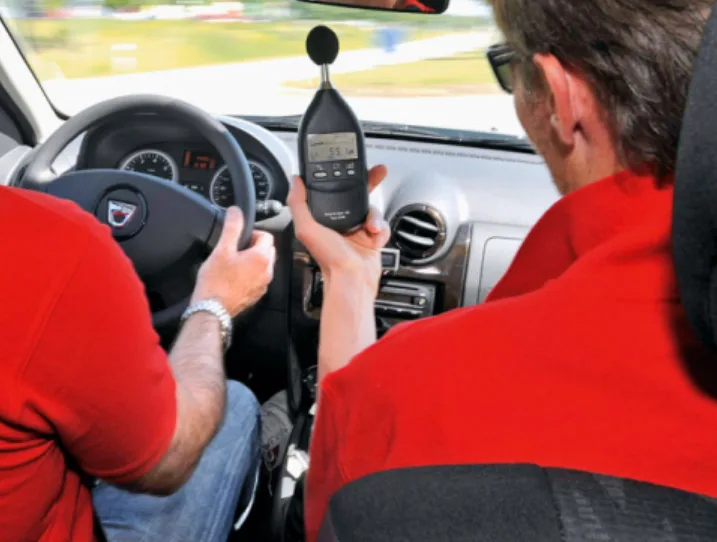
How Much Does It Cost to Soundproof Your Car?
For a common 4-door sedan, if you are paying $2.5 per square foot for your sound deadening material, the estimated cost for a DIY soundproofing process is around $337.50. Here is the breakdown of the cost:
Car Roof:
- Generally, expect approximately 30 square feet (2.79 square meters) of sound deadening material.
Car Floor:
- This area usually demands about 40 square feet (3.72 square meters), but larger vehicles might require more.
Car Doors:
- Each door might call for 5 to 10 square feet (0.46 to 0.93 square meters), so for four doors, that could range from 20 to 40 square feet (1.86 to 3.72 square meters) total.
Hood:
- Plan for around 15 square feet (1.39 square meters) of material here to combat engine noise.
Trunk:
- The trunk may need about 20 square feet (1.86 square meters) to seal any sound gaps.
Common Vehicle Multipliers
Different vehicles may require adjustments in your calculations based on size. For instance:
- 4-Door Sedan (our base example): 1x
- Coupe: Typically smaller, so multiply by 0.9
- 4-Door SUV or Crossover: Due to increased surface area, multiply by 1.2
- 4-Door Family Van: Given its larger size, use a multiplier of 1.3
- Pickup Truck: Since they can vary significantly, multiply by 1.4 for a full-size model.
Common Soundproof Material Costs
When considering soundproofing options, it’s essential to know the typical costs of various materials.

- Soundproofing PE foam generally costs around $1.50 to $3.50 per square foot (approximately €14.00 to €32.50 per square meter).
- Butyl rubber with annealed aluminum foil, which is highly effective for sound dampening, can range from $2.00 to $4.50 per square foot (around €18.50 to €41.75 per square meter).
- Other common products, like mass loaded vinyl, typically sell between $2.00 and $4.00 per square foot (roughly €18.50 to €37.00 per square meter).
Sample Cost Calculation
Let’s say your sound deadening material costs around $2.50 per square foot (approximately €23.25 per square meter). Here’s a quick breakdown of potential costs for our 4-door sedan:
- Roof: 30 sq ft (2.79 sq m) x $2.50 = $75 (or €69.75)
- Floor: 40 sq ft (3.72 sq m) x $2.50 = $100 (or €93.00)
- Doors: 30 sq ft (2.79 sq m) x $2.50 = $75 (or €69.75)
- Hood: 15 sq ft (1.39 sq m) x $2.50 = $37.50 (or €34.88)
- Trunk: 20 sq ft (1.86 sq m) x $2.50 = $50 (or €46.50)
Total Estimated Cost for 4-Door Sedan:
$75 + $100 + $75 + $37.50 + $50 = $337.50 (or €312.88)
Adjusted Costs for Other Vehicle Types
To arrive at the adjusted cost for various vehicle types, multiply the total estimated cost of the 4-door sedan by the respective vehicle multipliers:
- Coupe: $337.50 x 0.9 = $303.75 (or €281.59)
- 4-Door SUV or Crossover: $337.50 x 1.2 = $405.00 (or €375.00)
- 4-Door Family Van: $337.50 x 1.3 = $438.75 (or €406.75)
- Pickup Truck: $337.50 x 1.4 = $472.50 (or €438.00)
How to DIY Sound Deadening Your Car?
Strip Until You Reach the Metal and Clean It
First, remove your vehicle’s interior panels, seats, and carpeting to expose the raw metal. Next, use a degreaser to clean these surfaces thoroughly. A clean surface ensures better adhesion for your soundproofing materials.
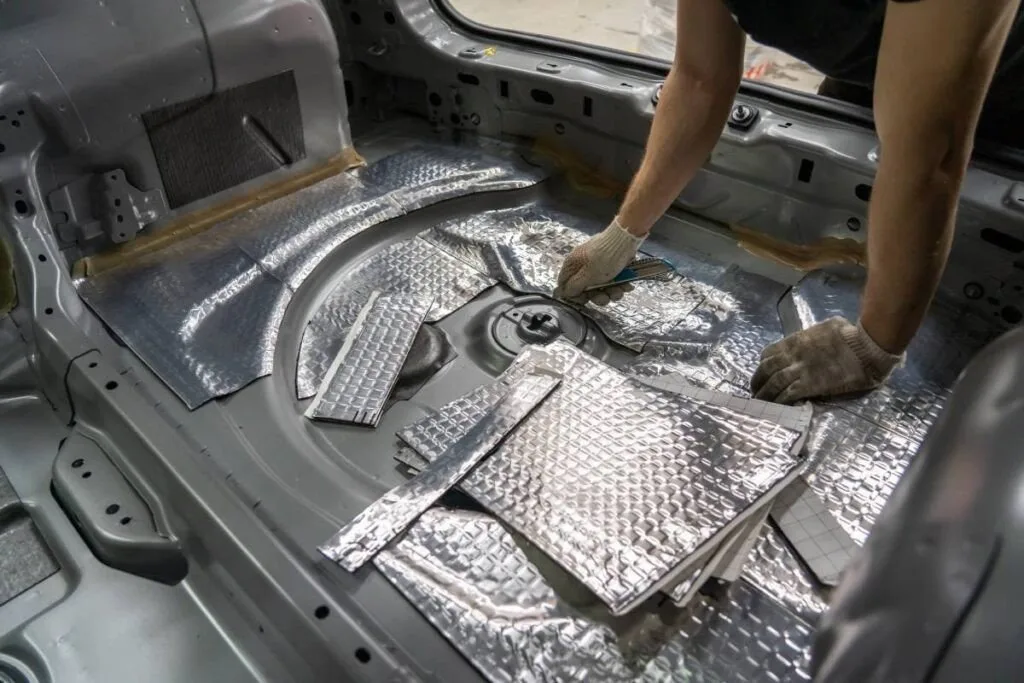
Apply Your Soundproof Materials
When placing the material, ensure you do this smoothly, leaving no gaps. Pay particularly close attention to corners and edges, as these areas tend to leak sound most effectively. Don’t skimp on rolling it out firmly, ensuring that every inch makes solid contact with the metal. This extra care can be the difference between a mediocre project and exceptional soundproofing success.
What Other Things Can You Do to Improve Soundproofing?
Aside from using quality soundproofing materials, consider other enhancements for reducing sound. Upgrading to ultra-quiet tires can significantly minimize external noise. Evaluate all seals on windows and doors, replacing worn ones with high-quality weather stripping. Investing time in securing loose components can also make a noticeable difference. Additionally, sound-deadening mats can be utilized in various areas to provide an extra layer of defense against unwanted noise.
Conclusion
In summary, transforming your vehicle into a tranquil haven from road noise is not only feasible but rewarding. Armed with soundproofing materials and techniques, you can enjoy your journeys in peace. At Fonitaniya™, we take pride in being a leading producer of adhesive tapes for automotive, including premium soundproofing materials specifically designed for automotive applications. Enjoy the ride, friends!
FAQs
What is the best sound deadening material for a car?
Mass Loaded Vinyl and sound deadening mattresses are highly effective soundproofing options.
How much does it cost to soundproof a car?
Expect costs ranging from $300 to $1,000, depending on the chosen materials.
Can I install soundproofing materials myself?
Yes, DIY soundproofing can be done efficiently with the right materials and instructions.
Do sound deadening mats really work?
Indeed, sound deadening mats significantly reduce noise levels within the vehicle.
What’s the difference between soundproofing and sound absorbing materials?
Soundproofing materials block sound transmission, while sound absorbing materials reduce echoes within the cabin.

